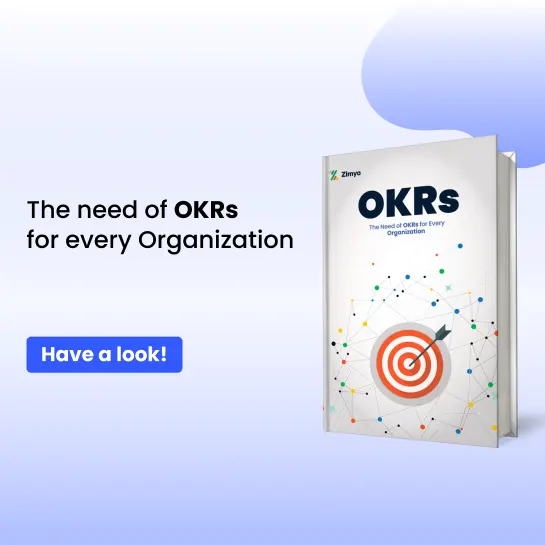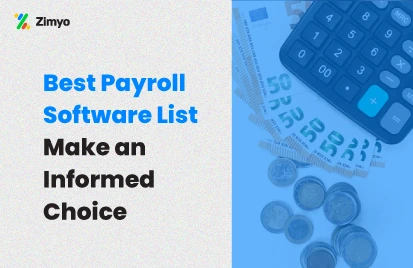What is a full and final settlement?
The full and final settlement process is one where all dues payable to and receivable from an employee are calculated, whether they’re – resigning, retiring, or being dismissed by management. Settlements are not limited to just drawing salaries but also the necessary deductions.
For the most part, an organization can take up to 20-30 days to complete the full and final settlement because of the lengthy processes it encompasses.
But according to the new wage code passed by the government recently, an organization must complete the full and final settlement within two days of the employee’s last working day.
Where the government seeks to implement the new laws, on the flip side, various states are yet to ratify these regulations.
If the wage code is executed at the mass level, countless businesses would’ve to revamp their payroll processes keeping the said timeframe in mind and delivering everything within two days.
The loophole here is that the code also lets individual states slide past it and set the full and final settlement timeframe according to what the state governments feel is acceptable.
Types of clearances in the full and final settlement process
While processing the full and final settlement, several components must be considered, including all arrears, details, etc. The settlement also includes clearances from different departments like finance, IT, admin, or the one wherein you worked.
The full and final settlement process includes numerous steps like documentation, deductions, arrears, asset handovers, receivables, salaries to-be, earnings, exit interviews, etc.
Some prime clearances from different departments inside an organization would be;
Clearance from the HR
Every organization has its regulations and policies in accordance with its HR.
Formalities such as exit interviews, feedback chains, quality offboarding, etc., are segments of the full and final settlement and HR leaders are the ones responsible for them.
Clearance from the IT department
This point is where you return the assets like – laptop, mouse, keyboard, phone or sim, vehicle, etc., that were lent to you by the company.
Damages to assets will/can be recovered from the full and final settlement amount.
Employee accounts are updated, and the leaving employee’s ID and all other credentials are deleted from the IT infrastructure.
Clearance from the admins
At most, this involves reacquiring all access cards and physical IDs present with the employee that can be used to gain access to places within the organizational boundaries.
Clearance from the finance division
Calculation of the final reimbursement is an arduous task. Every detail has to be taken into account, from arrears to deductions to bonuses, etc. The major constituents of the full and final settlement in monetary terms are;
- Outstanding/Unpaid salaries
When the employee is bidding farewell to the company, the salary due till the date of their resignation needs to be calculated. This amount also includes the benefits provided to the employees, such as LTA (Leave Travel Allowance) or any other arrears.
- Bonuses and leave balance
According to the regulations, all the leaves in balance, bonuses, etc., must be calculated and added to the full and final settlement amount. Also, the said amount should be paid before the 7th or 10th of the upcoming month.
Bonuses are something that employers wish to present to the employee for their performance, work, and other goals achieved.
- PF & Pensions
PF (Provident Funds) are the portion deducted from our monthly salaries and deposited by the employers.
PFs are payable to all employees whenever they want; on the flip side, pensions are payable in full and final settlement amount only after completing ten years of service in a firm.
If an employee is transferring, the PF amount can be migrated as well, or if the employee wants, it can be credited to their account.
- Gratuity
Gratuity is a benefit that employees are granted by their organizations only after completing at least 4.5 years. As for the rules, if the gratuity amount isn’t paid within a month of the employee’s transfer, then the employer is liable to pay interest on it as well.
- Deductions
Deductions primarily have an employee’s income tax, provident fund, other taxes (as per policies), and any balance to compensate if the notice period was not served.
Earned leaves have already been encashed, and gratuity is exempted from TDS dues.
Exact tax deductions vary due to several factors. PF and other tax deductions rely on an employee’s salary, company policies, etc.
Income Tax deductions depend on a person’s income bracket. Salary up to 2.5LPA are exempted from paying tax, but some above that ratio are liable to pay around 5% tax, going up according to the salary package.
FnF slip format
| Employee Name | |
| Employee Number | |
| Employee Address | |
| Date of joining | |
| Date of leaving | |
| Reason | |
| Last working day | |
| Last drawn salary | (e.g.) ₹30,000 |
| Pending salary days | 45 |
| Salary Payable (Gross) | ₹45,000 |
| Leave encashment | ₹3,000 |
| Gratuity | – |
| Bonus Payable | ₹15,000 |
| (A) Amount Payable | ₹63,000 |
| Deductions | |
| Advance Balance | ₹50,000 |
| Other Recovery Dues | – |
| Stores & other department clearances | – |
| (B) Total deductions | ₹50,000 |
| (A) – (B) = Net salary payable | ₹13,000 |
More from Zimyo;
7 Emerging Trends in Human Resource Management (HRM)
TDS Challan: FAQs and all you need to know
9 Biggest Payroll Challenges In 2022
How is FnF calculated?
HR managers are the primary people to calculate an employee’s full and final settlement amount.
Full & final settlement is a pool of all the factors we discussed above with their own calculations. Calculate the remaining remuneration amount, withdraw the taxes, arrears, and PF from that amount, and compute the paid leave balance or any other bonuses.
Nowadays, organizations prefer machines or tech solutions to calculate these amounts rather than depending upon traditional manual methods.
The modern-day tech-driven solutions use robust and reliable techniques to calculate the final amount to be reimbursed to the employee in an organized manner. In the end, the full and final settlement is completed with a letter summarizing the entire process.
Verdict
The full and final settlement process is a comprehensive one. When implemented accurately, it assists all organizations in bidding a systematical farewell to their employees.
The full and final settlement process requires HR experts and people with precise calculations.
This modern era is now driven by custom-made automated software to augment employee as well as managerial experiences. The tech solutions assist in speeding up the FnF processes and avoid any errors in calculations.
After going through the above information, you must also want an ideal solution for your full and final settlement processes. From daily HR activities to payroll, ATS, PMS, onboarding till offboarding, and not to forget, the added benefits are just the primary factors among the tall list of advantages. Visit Zimyo to make your employees’ experience the best they can get.
Also Read: How To Conduct Exit Interviews
FAQs(Frequently Asked Questions)
The full and final settlement process of an employee generally ranges from a period of 30 to 45 days.
Full and Final Settlement also known as FnF is the process that happens when employee is taking exit or terminated from the organization.
The formula to calculate FnF with gratuity is
(15* Last drawn salary* Working tenure)/30






